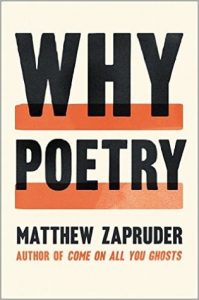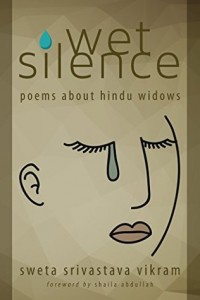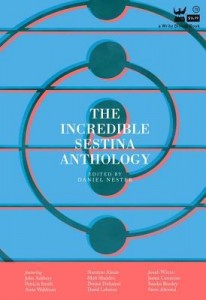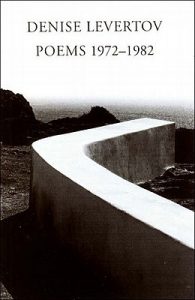 I’ve been going on and on for about six years about how I don’t know anything about poetry. This repeated admission has been a laying bare of my insecurities and a spur to jump into this abyss I feared so much but could not resist. And in truth, I’ve been writing poetry now, consistently and improvedly, for over three years, but I still hunger to know more and to work through this feeling that there is something I am missing.
I’ve been going on and on for about six years about how I don’t know anything about poetry. This repeated admission has been a laying bare of my insecurities and a spur to jump into this abyss I feared so much but could not resist. And in truth, I’ve been writing poetry now, consistently and improvedly, for over three years, but I still hunger to know more and to work through this feeling that there is something I am missing.
So when I first heard Matthew Zapruder mention his (then forthcoming) book, Why Poetry? at a lecture, I knew I had to have it. Now that I’ve consumed the book, though I’m sure I’ll return to it again and again, I have a better understanding of what I was afraid of about reading poetry, the things I’m getting wrong about writing poetry, and the reasons I can’t stay away.
A Little Machine for Producing Discovery
“[I]n the course of writing, the poet eventually makes something, a little machine, one that for the reader produces discoveries, connections, glimmers of expression.” – Matthew Zapruder, Why Poetry?
How irresistible is that quote for anyone who enjoys tinkering of any kind? Despite all my tinkering with words, I continue to wonder, “What is a poem, anyway?” I was once told (somewhat scarringly) that something I’d written wasn’t a poem but simply a list of words strung together. Reading Zapruder, I had to admit those words I’d hated to hear might have been right. Why Poetry? examines the core of what transforms words into poetry from so many angles that it’s impossible to summarize, but unlike the prescriptive poetry lessons so many of us were subjected to in high school English classes, Zapruder’s approach is so curiosity-based and full of love for the form that Why Poetry? is a delight to read.
Movement of Thought
What really flipped a switch for me in Why Poetry? was the idea that poetry is a movement of thought which allows the reader and writer to produce and explore new associations and ideas. It’s not something I’d really noticed about the poetry I’ve been reading all these years and, yet, as I’ve been reading poetry since finishing Zapruder’s book, it seems key.
Though I’ve accidentally followed a train of thought in the way Zapruder describes in a few poems, honestly the ones that have felt most successful, I’m excited to explore this concept more. I’m not wholly convinced that without this factor, a poem isn’t just words strung together, but I can’t wait to see what feels right in my writing.
Being Myriad
“A poem does not exist in order to get a single message across, or to privilege one idea above all others.” – Matthew Zapuder
Maybe one of the most freeing things about reading Why Poetry? was the idea that in a poem I could be conflicted, complicated, myriad. This is one of the things I struggle with most in everyday conversation—the inability to communicate the layers of truth in an idea and the places where I know I contradict myself and what that all means. The idea that I could inhabit and explore all of these layers at once is incredibly freeing. It’s like looking into my closet and realizing that there isn’t one character I have to be that day, that instead I can choose any combination of things that I love and just be in that outfit, that moment.
Seeing Connections Others Do Not
“The ear of the poet is not merely attuned to sonic music. It is attuned to the music of ideas in words, the latent resonances, the ones always waiting in etymology, the pasts of words, our individual pasts, and our collective memory.” – Matthew Zapruder
Though I come from a long line of successful punsters, nothing has made me more attuned to language than having a young child who’s learning to communicate with words. Just recently, he was telling my husband that his Batman-obsessed friends were all playing with the Batmowheel. A few years ago I would have simply thought that was cute, but now that I’ve been paying closer attention to words, I see the logic and beauty of the associations he’s making and I’m paying closer attention to my own. I used to be a lot better about this kind of seeing, but I steered away from it when I sensed the power it had to manipulate understanding. Which brings us to…
“Coming Back to Language, to Naming”
“The energy of poetry comes primarily from the reanimation and reactivation of the language that we recognize and know.” – Matthew Zapruder
When I first really started getting serious about poetry, I began by reading it in French and Spanish. I did it because I was scared of many of the things Zapruder identifies are wrong with the way we teach poetry (especially the insistence on symbolism). What I also achieved, though I was not aware of it at the time, was the defamiliarization of language. In Verlaine I heard mostly the sound of the words. In Lorca and Neruda I found words that I understood with my childish Spanish, which sometimes involved seeing most clearly the false cognates. I did not learn much about the strict structure of poetic forms in either language, but I was learning to look at words and to hear them.
“To live morally, to avoid self-delusion and even monstrosity, we have to think about what we are saying, and to avoid euphemism and cliché.” – Matthew Zapruder
Reading Zapruder, I was also reminded of that fear I’d encountered before of the power language has to obfuscate true meaning. I’m thinking of how difficult it becomes to fight against a wrong idea once a strong (but wrong) label like “Patriot Act” or “Pro Life” is applied. In essence, because of my own fear of the power of language, I’d stepped away and let others, who don’t have the same principles, make what they wanted of language and life. Zapruder (and poetry) are of course not arguing for the misconstruing of words, instead the idea is to bring us back to real meaning or even to understand the evolution of language. I can get behind that.
Slowing
“Reading poetry has the salutary effect on me of forcing me to read, and think, at a different pace than the rest of my life demands.” – Matthew Zapruder
I am as guilty as everyone of letting myself get wrapped up on a life full of work and social media, entertainment, and family. Unfortunately, in that order. And I’ve always been guilty of the sin of skimming, especially when reading poetry. I loved this emphasis on slowing and inhabiting, and reading Zapruder’s words here reminded me of the simple relief of focusing on the passage of a single breath. I’m looking forward to mending my ways a little and making more space in moments for words.
Shedding Airs
Something else I’m all too guilty of is applying a poetic mood to my work. A false one. Zapruder says he often sees his students “presenting their poetic qualifications” by being “deliberately obscure and esoteric, because it is a shortcut to being mysterious.” At least I’m not alone? I guess my poetry newbie insecurities show rather obviously in these moments. Which is okay. As long as I learn when this particular way of using language feels authentic to me and when to edit it the fuck out.
Dreams, Strangeness and Being Known
“[T]he true difficulty—and reward—of poetry is in reading what is actually on the page carefully, and allowing one’s imagination to adjust to the strangeness of what is there.” – Matthew Zapruder
The poetic airs, too, have been a shortcut to inhabiting my own strangeness. Not that I’m the enigma I sometimes believe myself to be, but that by frosting my ideas, I can simultaneously be “interesting” and not reveal my true self at all. One of my deepest struggles is this push/pull of being known, and although I’m aware of the hollowness of the game—as long as I don’t share the unvarnished me, I cannot be rejected, but I also cannot be loved for who I truly am—I don’t always stop myself from hiding. Despite how lonely it makes me feel.
“George Steiner defines every speech act between two people as a kind of translation, a negotiation between what he calls ‘the external vulgate and the private mass of language.'” – Matthew Zapruder
“The poem also reminds us of the dual nature of language, how each word means something particular to a person, and how we are also somehow not locked into those personal associations.” – Matthew Zapruder
Does this mean I should blarp all of me, unedited, onto a page and call it poetry? No, and there are some early submittals I’d rescind right now if I could. But it does mean that I can (and must, really) explore honestly my experience of being human. Sometimes that will be messy, sometimes clear. Sometimes it will be both. But I have to stop fighting it because it might be the best chance I have to become the fullest version of me. And I get to do it in the private dialect that until now I never had any reason to believe anyone but my husband would ever understand.
“What I thought was my principled resistance to meaninglessness was really a fear of, and attraction to, a new life.” – Matthew Zapruder
Am I a Poet?
“[T]hat choice to be ready to reject all other purposes, in favor of the possibilities of language freed from utility, is when the writer becomes a poet.” – Matthew Zapruder
Yes. I am a poet. Sometimes. Zapruder helped me see that as much as I’ve been fighting this thing, it really is something I cannot not do. I’m not sure I’d pass that final litmus test above just yet, but I’m willing to consider it as I tinker. And there was one last little tidbit in Why Poetry? that made me feel like I was on the right track:
“Poetry has always existed and always will exist, because there will always be the need to say that which cannot be said.” – Ralph Angel
“Saying that which cannot be said” are the words from an artist statement I wrote long ago that still feel truest to me. In both senses of the word.
To discover your own path with poetry, pick up a copy of Why Poetry? from Bookshop.org. Your purchase keeps indie booksellers in business and I receive a commission.
 How many ways can you write about widowhood? In Wet Silence: Poems about Hindu Widows, Sweta Srivastava Vikram explores every nuance of what life is like for a Hindu widow in India. It’s as much a human exploration as a cultural one as Vikram delves into the aftermath of the complex relationships that underlie arranged marriages. Some of the widows in this collection are devastated that their beloved husbands have passed. Others rejoice in their new freedom from abuse and adultery. Still others face new complications in their relationships with the families to which they have now become burdensome.
How many ways can you write about widowhood? In Wet Silence: Poems about Hindu Widows, Sweta Srivastava Vikram explores every nuance of what life is like for a Hindu widow in India. It’s as much a human exploration as a cultural one as Vikram delves into the aftermath of the complex relationships that underlie arranged marriages. Some of the widows in this collection are devastated that their beloved husbands have passed. Others rejoice in their new freedom from abuse and adultery. Still others face new complications in their relationships with the families to which they have now become burdensome. I have a confession to make. I’m only halfway through The Incredible Sestina Anthology so I really shouldn’t be reviewing it here yet, but my brain is so wrapped up in the book and the form that I wanted to share my feelings about it now both so I don’t lose the threads of what’s so exciting and so I can delve deeper into understanding the nature of that excitement. Since it’s a book of poetry, let’s bend the rules a little today, shall we? At least I know the plot won’t shift radically when I turn the next page.
I have a confession to make. I’m only halfway through The Incredible Sestina Anthology so I really shouldn’t be reviewing it here yet, but my brain is so wrapped up in the book and the form that I wanted to share my feelings about it now both so I don’t lose the threads of what’s so exciting and so I can delve deeper into understanding the nature of that excitement. Since it’s a book of poetry, let’s bend the rules a little today, shall we? At least I know the plot won’t shift radically when I turn the next page. There are many ways I will fall in love with a book.
There are many ways I will fall in love with a book.